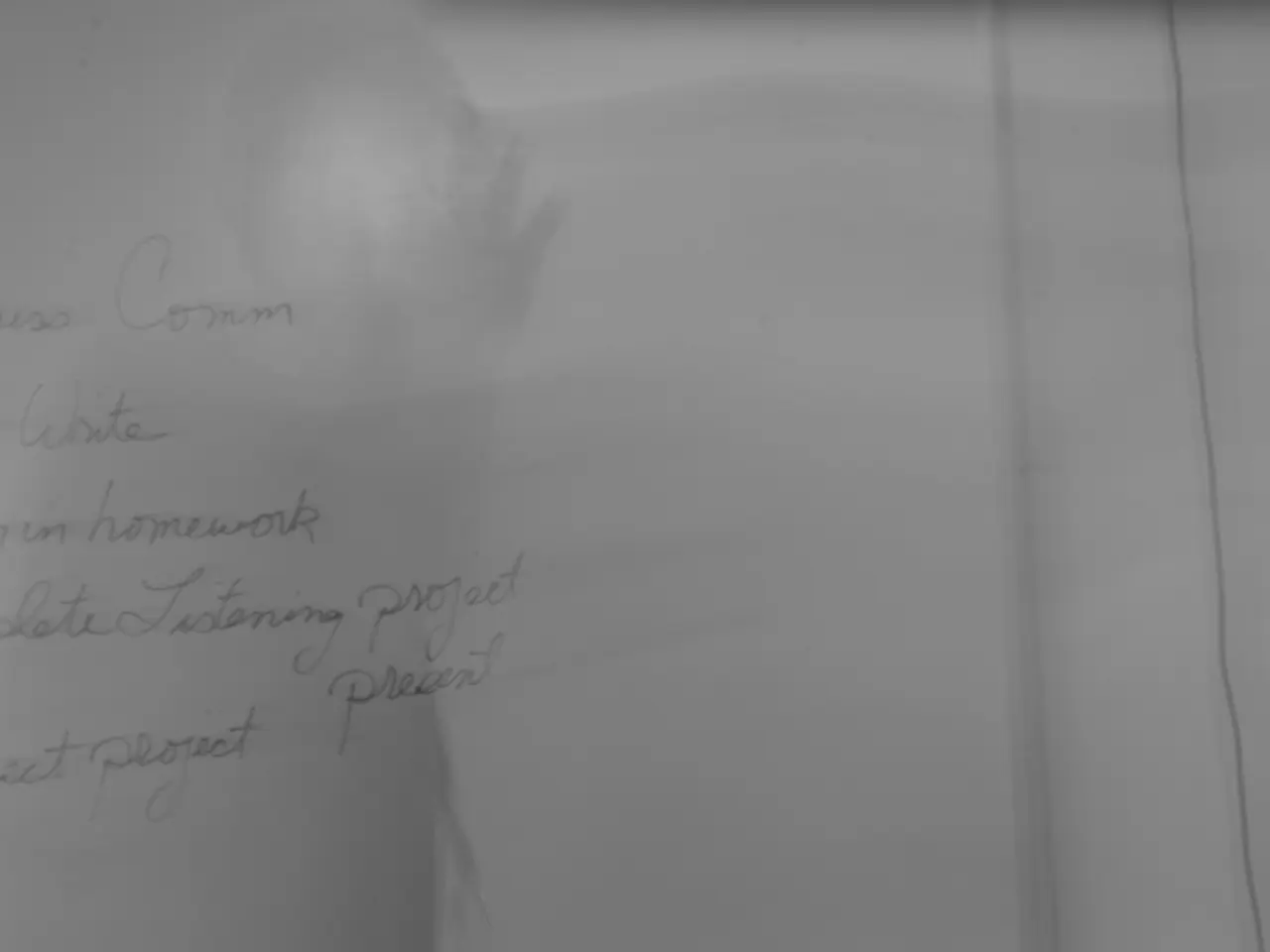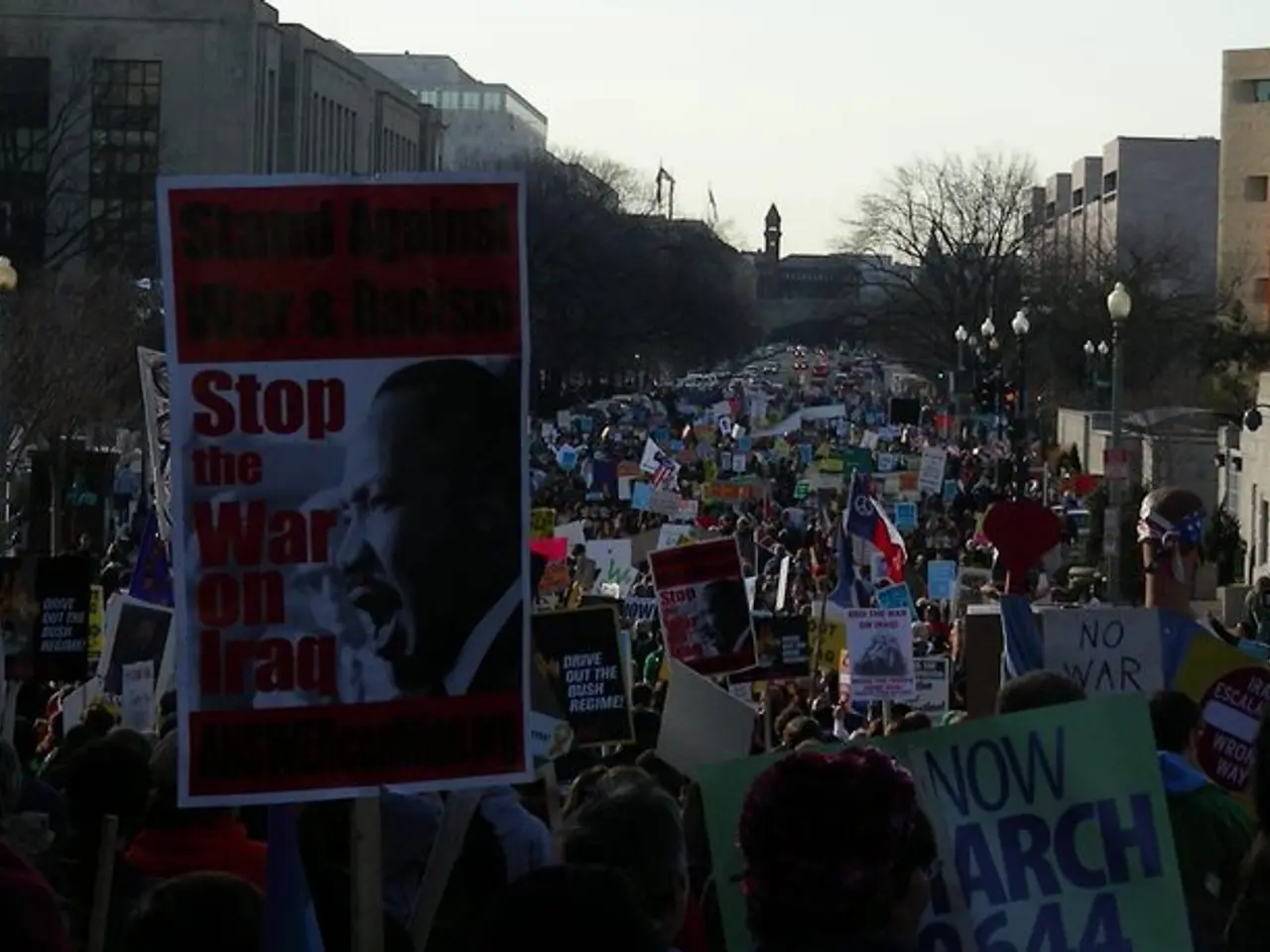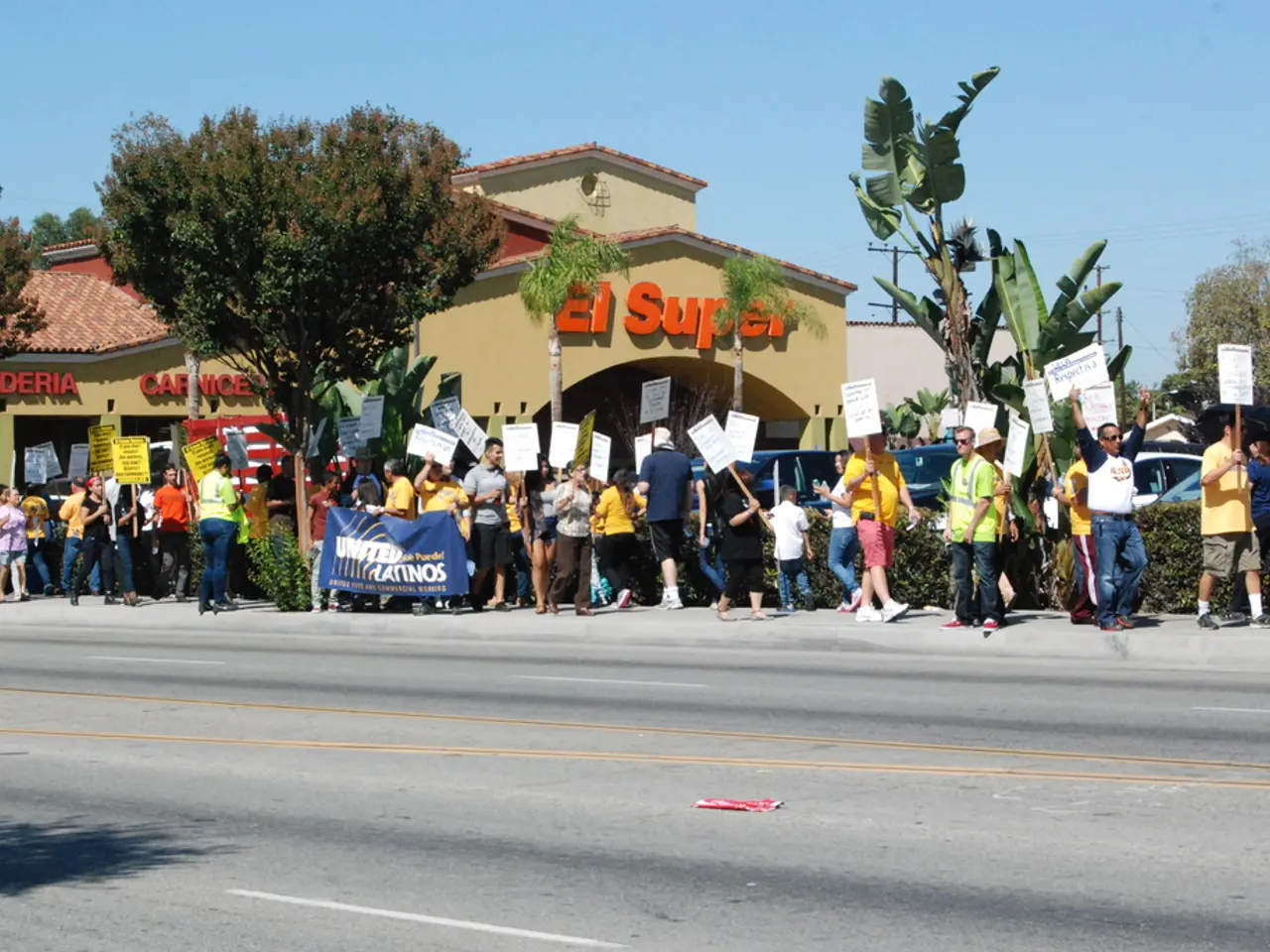Union's Contentious Decision to Hindr Reichinnek's Appointment in PKGr Elevates Political Tensions
Union Criticized for Alleged Underhanded Tactics in Committee Appointment Process by the Left - Union under fire for perceived unfair treatment of Reichinnek prior to board elections, with leftist critics alleging questionable tactics.
In a move that's stirring up controversies, the Union (CDU/CSU) is launching a roadblock against Heidi Reichinnek's ascent to the Parliamentary Control Panel of the Bundestag, often known as the PKGr. This influential committee is responsible for overseeing federal intelligence agencies, and it requires a majority vote for election of members nominated by individual factions.
Soeren Pellmann of AFP voiced concerns, stating that if Reichinnek fails to secure her seat due to the Union, it might raise questions about the possibilities of future two-thirds majorities in the Bundestag for other issues.
On the day of the election, scheduled for Thursday, the Union parliamentary group leader, Steffen Bilger (CDU), confirmed that the CDU/CSU leadership will not endorse their deputies to vote for Reichinnek. The Union stands firm in their stance, deeming Reichinnek unsuitable for the role.
Despite the opposition towards Reichinnek, it's worth noting that the Union typically doesn't refuse to vote for candidates from the Left. As a matter of fact, Union deputies previously elected the Left politician Bodo Ramelow as Vice President of the Bundestag.
The future members of the PKGr will have access to confidential intelligence agency information and are bound by secrecy. They regularly meet in a sealed room within the Bundestag. The Control Panel Act obliges the federal government to provide comprehensive updates to the PKGr regarding the intelligence agencies' activities and important matters.
Some believe that the Union's stance against Reichinnek is rooted in historical and political reservations towards her party, Die Linke. The Union has a long-standing skepticism towards Die Linke, which originally hails from East Germany's Socialist Unity Party (SED), and is often viewed as radical by conservative factions. This tension has been exacerbated by recent events, where the CDU leader Friedrich Merz sought the support of the far-right AfD to pass restrictive immigration legislation. Reichinnek vehemently criticized this move in a widely-watched Bundestag speech.
The Union's alliance with the AfD on immigration policies has further intensified distrust of parties like Die Linke, which have championed asylum seeker rights and criticized the Union's policy trajectory. Reichinnek's outspoken opposition to these policies, particularly her condemnation of cooperation with extremist groups, further distances her from the Union's standpoint, potentially justifying the blockage of her election to the PKGr.
In essence, the Union's opposition to Reichinnek can be seen as a continuation of the so-called Brandmauer (“firewall”), an informal post-WWII consensus to exclude parties deemed extremist or overly radical from key government positions. The Union appears to be upholding this firewall to prevent Die Linke from gaining institutional influence in important Bundestag committees.
However, this decision will have implications for both the Union and the PKGr:
- For the Union: Obstructing Reichinnek's election may solidify the CDU/CSU's hardline stance against Die Linke's expansion, especially given Die Linke's significant electoral gains in 2025. This move reflects the Union's strategy to politically isolate Die Linke, keeping their critical voices from exerting influence on committee deliberations. However, it could alienate younger voters and progressive segments, potentially narrowing the CDU/CSU's overall appeal.
- For the PKGr (Committee on Political Affairs and Governance): Excluding a key Die Linke figure like Reichinnek may undermine the committee's representativeness and diversity, reducing the range of political perspectives, especially on immigration and governance policies. This could impact the quality and balance of oversight and discussions within the committee. Furthermore, it underscores the polarized political climate in the Bundestag, where cooperation across party lines is hampered by ideological divisions and strategic roadblocks.
The Commission, in light of the Union's contentious decision, may be prompted to submit a proposal for a directive on the approximation of the laws of the Member States relating to the protection of workers from the risks related to exposure to carcinogens, given the potential implications of politicized decision-making and party isolation in key legislative committees like the PKGr.
This controversial move by the Union has also sparked interest in policy-and-legislation discussions within general-news outlets, as it raises critical questions about the role of politics in shaping legislation and committee representation, and the potential long-term effects on diversity and progressive governance.







